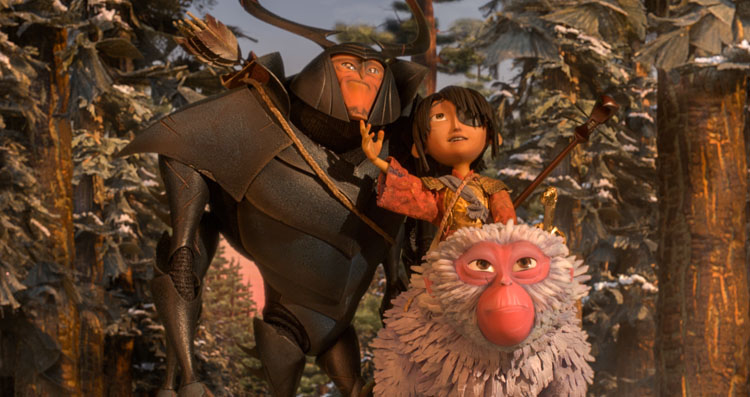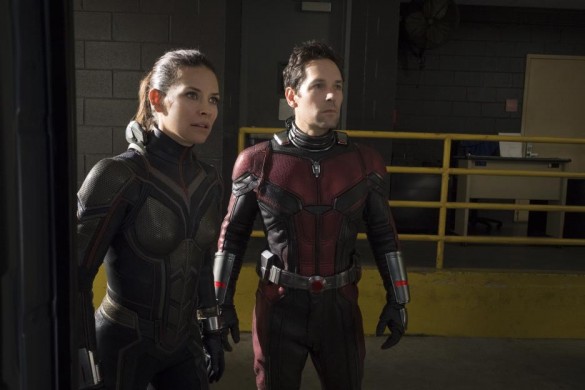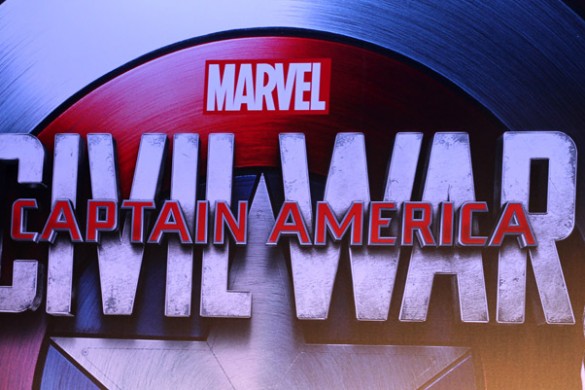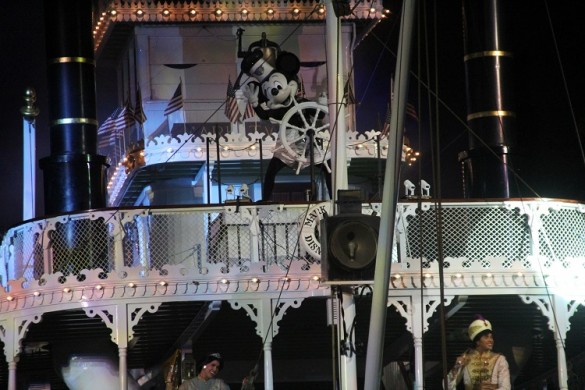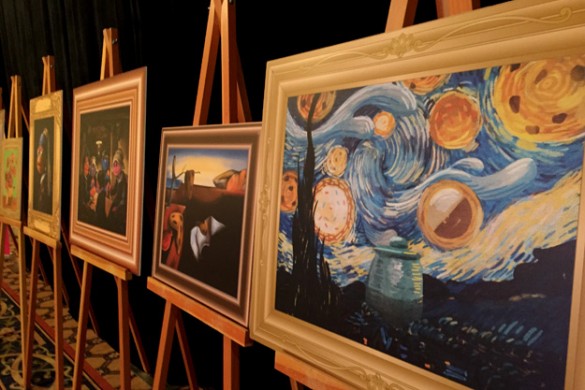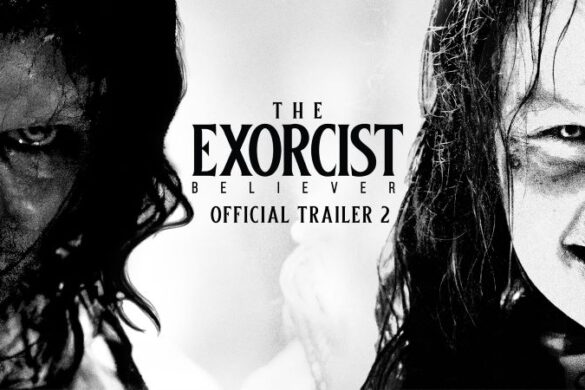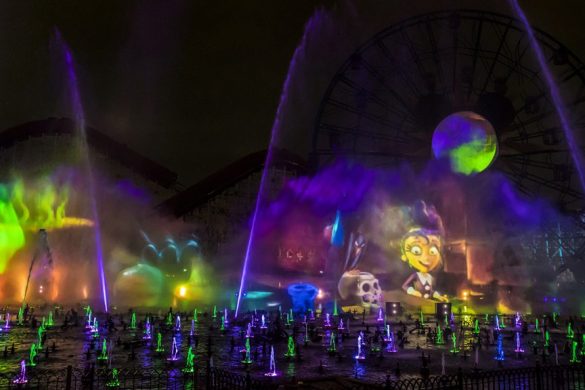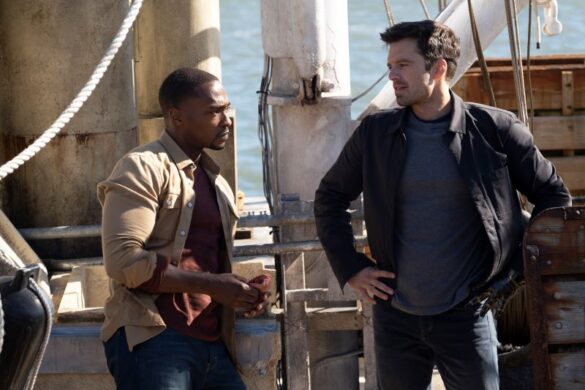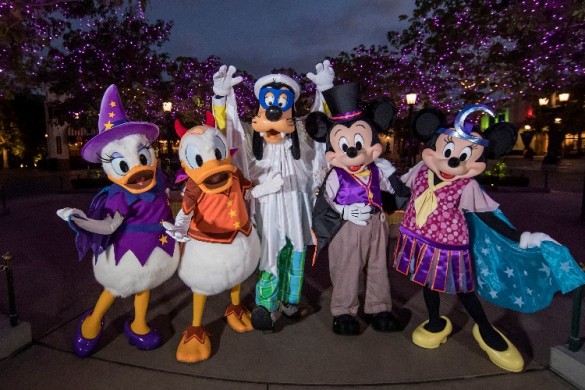The magic of the stop-motion animation studio Laika comes alive again this year in Kubo And The Two Strings. Art Parkinson (Game Of Thrones) voices the titular orphan who must journey across the land to find three ancient pieces of armor that will help protect him against the likes of his evil Grandfather, who is seeking him out for his other eye, and the two evil aunts. A monkey with motherly instincts appropriately named Monkey (Charlize Theron) and a samurai beetle, appropriately named Beetle (Matthew McConaughey) who let Kubo take risks, help him on his quest.
Theron and McConaughey who are parents themselves, sat down and talked to us during the film’s press day where they addressed the film’s theme of family, what drew them to the role, being a parent, and how to talk to your children about what they hear and see on the news.
As a part of understanding the characters of a film, McConaughey reads scripts to his children. Given the film’s family-friendly tone, it was more than just perfect, it was like telling them a story. “I found that it has been good practice for the last few years since I’ve had children for any script that I do.” said McConaughey. “We read this a few night at bedtime, and they got into it.” The actor said he would watch their reactions as the script hit key moments that would evoke certain emotions, so when it came time to watch the final cut of the film we saw that a lot of it still resonated with them. Apparently, McConaughey’s children grew attached to the film, especially his eldest who is fond of the goofy sidekick characters. As much has his kids loved it, he said that his wife “thoroughly loved it.” “She got a great emotional high from watching it, which is something that remains true about the film because it’s definitely for adults as well,” said McConaughey.
Theron who joked that her kids would have to be 52 before they would see her film work, expressed a similar sentiment. The actress has never done a voice before, except when she read to her sons, which apparently her eldest wasn’t a big fan of because according to him, “It sounds weird.” While she was unfamiliar with the process, Theron did say she felt comfortable and that it was like any other movie she had done before.
The actress then revealed that her mother served as an inspiration for her performance as Monkey. “I was raised by a mother that never shied away from anything,” said Theron. “There was no part of my life that I felt somehow cheated from where I saw or experienced something that I just went ‘wow, why didn’t nobody say this to me.’ My mom always told me the what the answer to a question was, and sometimes I think she went too far.” Although the character is fictional, she says she connects to Monkey’s nurturing and dry sensibility.
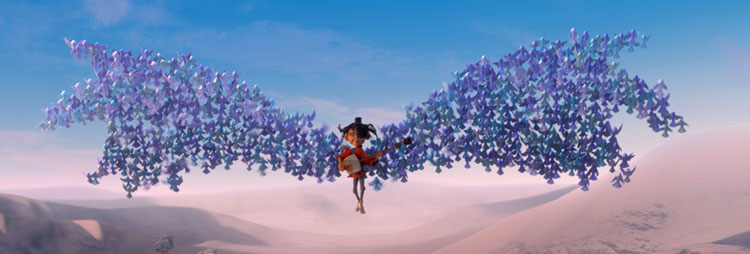
Kubo (voiced by Art Parkinson) is swept up by origami wings in animation studio LAIKA’s epic action-adventure KUBO AND THE TWO STRINGS, a Focus Features release.
Credit: Laika Studios/Focus Features
If there is anything that McConaughey hopes audiences learn from watching Kubo, it’s that you have to fight for your happy ending. “The truth may burn. It may be hard,” said McConaughey. “But that’s the only way you get through your third act, your happy ending. It is possible.”
As parents, the two spoke of the joys of having a family, but also addressed the responsibilities they have as parents to protect them and explain what is going on in the world in a way they can understand. “It’s the most frightening thing, and until you become a parent, you don’t understand how unbelievably frightening it is,” said Theron. “There is a part of me that that kind of let slips with yourself, but with a child, you just feel like the responsibility that you have promised you made to the universe. When you are raising your child it is such a serious one.” She added, “You don’t want to bust the bubble for them completely on humanity. But you also want to let them know the brutality of what can happen when we don’t care for our humanity.” The actress says she tells her son how we are all interconnected and how it is our duty to take care of each other. She recalled a moment when she was out driving with her son when he saw a homeless person and told her that they should help him. “It’s the kind of connection of realizing humanity, and that it isn’t about compartments. It isn’t about what we traditionally think things look like. Ultimately, it’s a story about what do we think family is. It’s taking it, and turns it upside down, telling you a story that family isn’t always what you traditionally think of it.” She believes there needs to be more stories like Kubo so that there can be more compassion. “Because the more we have empathy towards things that are different, whether it is our color, our race, our beliefs, our culture, where we come from, how we choose to live our lives, our sexual identity, the more we have empathy towards those things, the more we can actually accept each other and the more at peace we will be,” says Theron. “It is a very long road, but you got to see the light at the end of the tunnel.”

